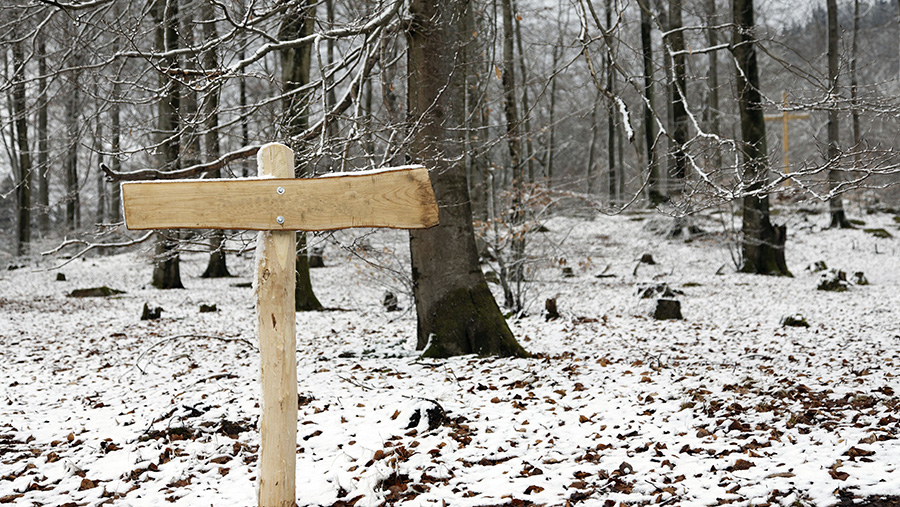Farmer landowners sought for natural burial project
 AnnaReinert/imageBROKER/REX/Shutterstock
AnnaReinert/imageBROKER/REX/Shutterstock
Innovative landowners are being asked to take part in a project which wants to create more natural burial sites.
Natural burial, or green burial, is a process where the deceased is buried in woodland or meadows and care is taken to minimise the environmental impact through the use of natural materials.
This type of internment has become more popular in recent years, with 270 registered sites now offering the service.
The Corpse Project is a new initiative which is seeking to improve the options for dealing with people’s bodies after death and has received £50,000 seed funding from the Wellcome Trust for the next 12 months.
It wants to work with landowners interested in offering sites and methods which work for families and friends, the landscape and wider ecosystems.
See also: So you want to open a green burial ground
Where to get more information
Led by the Royal Forestry Society president Sophie Churchill, the project is carrying out research into where best to bury, the depth of burials, reuse of sites, potential use of pyres, burial mounds and business models.
“We are interested in using land which is already lightly grazed, because enrichment might be at least not harmful and might be helpful, compared to unenriched grassland,” said Ms Churchill.
“We are interested in experimenting with exhumation, where families are interested in this. This is common in some parts of the world, such as Germany, but not in the UK.
“We want to look at business models – how it works commercially for landowners, especially for those who also use their land for other things.”
Carlisle City Council opened the first natural burial ground in 1993 and the National Death Centre says there are now 270 natural burial grounds in the UK, with more in the planning system. Some are privately owned, others are run by landowners and a number are administered by corporate companies.
At present, about 70-75% of people are cremated, with about 20% buried in churchyards.
Ministry of Justice (MoJ) guidelines say people looking to set up natural burial sites should make sure they meet burial, ecclesiastical, planning, environmental and wildlife legislation as well as meeting health and safety and access requirements.
“Demand for natural burial appears to be increasing although there are variations in different regions,” said the MoJ.
Julie Chatfield, who runs a beef and sheep holding at Crossways Farm, Cheriton Bishop, Devon, said getting planning permission for Crossways Woodland Burials had been relatively easy.
“All we had to do was to demonstrate that we were not going to pollute the watercourse and make sure there were no highways issues. Natural burials are not going to make you a fortune but there is growing interest as people reject impersonal cremations. We do around two a month at present.”
Simon Ferrar, manager of Clandown Wood Natural Burial Reserve in the Surrey Hills, said natural burials were practical, inclusive, cost-effective and helped improve the natural environment.
